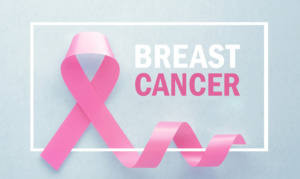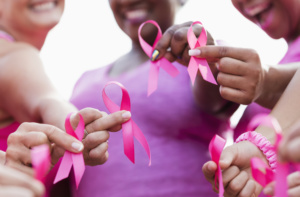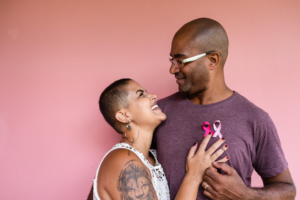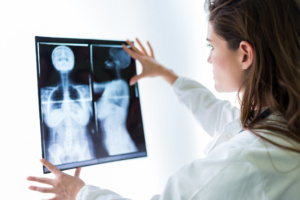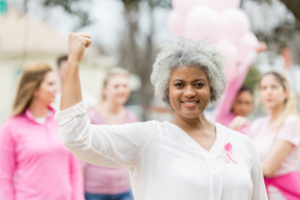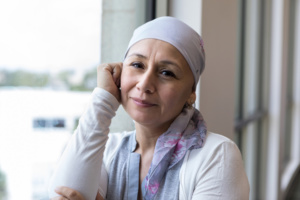Breast Cancer Q&A With Dr. Erin Fleener
from the Cancer Clinic
Q: Why is breast cancer awareness so important?
A: Dr. Fleener: Breast Cancer is the number one cancer diagnosis in women and it affects a lot of people. Somehow there are still people in this country – and people all over the place – that don’t know how prominent or common breast cancer is, or that early detection is important for saving lives. It’s so important that we continue to make people aware of how common breast cancer is and, more importantly in our community, what local resources patients have, especially if they don’t have insurance or if they think they’re not able to get care.
Q: What types of breast cancers are there?
A: Dr. Fleener: There are several types of breast cancer. The two main types are known as Ductal Carcinoma and Lobular Carcinoma. Beyond those two types there are breast cancers that are driven by estrogen, called estrogen receptor positive breast cancers (ER+), and HER2+ breast cancers. A third type of breast cancer is called triple negative breast cancer, which means that the breast cancer is negative for estrogen receptors and progesterone receptors.
Q: What factors impact my chances of getting breast cancer?
A: Dr. Fleener: Only approximately 10% of breast cancers are caused by genetic mutations that women carry. The other approximately 90% are sporadic breast cancers. One out of every eight women, if they live into their eighties, will get breast cancer. There are other factors that are known to impact risk, such as; the use of hormone replacements, long term estrogen or birth control use, obesity, and excessive alcohol use. While these factors are thought to impact risk, there is still much that is unknown about what exactly causes breast cancer.
Q: When should I begin screening for breast cancer?
A: Dr. Fleener: Most guideline groups say that we should start screening women with mammograms at forty years old. If you are a high-risk patient who has a genetic mutation or a family history of breast cancer, there are guidelines that suggest you should start screening in your twenties. Mammograms are not great screening options for women under the age of forty, so sometimes in the high-risk groups we will use breast MRIs for screening.
Q: What are the symptoms of breast cancer?
A: Dr. Fleener: If it was caught with a mammogram or very early, most patients don’t have any symptoms. The most common patients don’t have any symptoms at all and they’re totally shocked to discover they have breast cancer. If you’re having symptoms in the breast, it can be a bit concerning if you’re diagnosed with breast cancer. Either the breast cancer has been there for a long time, or it could be an aggressive form of breast cancer that’s causing pain. One type of breast cancer that is very uncommon is called inflammatory breast cancer. This can cause the breast to be very red or hot, and the skin can be pretty swollen with fluid. We don’t see that very often but it does occur.
Q:What treatments are available for breast cancer?
A: Dr. Fleener: Most breast cancers are going to be cured with a combination of surgery, radiation, and sometimes chemotherapy. Hormonal blocking drugs (such as tamoxifen) can be used to treat ER+ breast cancers. In HER2+ breast cancers, we use monoclonal antibodies which are proteins that attack HER2 receptors. For triple negative breast cancer, particularly in stage four, we use an immunotherapy drug. We have all of those available here locally at St. Joseph’s Cancer Clinic. The Cancer Clinic is a “Breast Center of Excellence” which is a national commendation which shows that our surgeons, our radiation doctors, our radiologists, our medical oncologists have all come together to make sure that we meet certain requirements that are recognized nationally. This ensures that all of our standards are of the highest level. Another thing that is required for a “Breast Center of Excellence” commendation is that you have access to clinical trials. That means we have access to cutting edge research in breast cancers and other cancers at our center. We put a small percentage of our patients on clinical trials.
Q: How can I lower my risk for breast cancer?
A: Dr. Fleener: Avoiding hormonal therapy, estrogen use, or long-term birth control is likely to lower your risk of breast cancer. A healthy lifestyle and exercise, as well as trying to keep the fat content in your body down also might lower your risks. It is my personal belief that exercise and personal fitness in young women in their teens and twenties is very important at preventing all kinds of malignancies, including breast cancer. Alcohol use in moderation is important as well.
Q: Is there anything else you would want to share with women in our region that are over the age of forty?
A: Dr. Fleener: Mammograms are a great screening tool, but we don’t have anything perfect for screening breast cancer in young women. So, if you find something different in your breast – something new that you think is wrong – and you go get a mammogram and it’s been read as normal, but you know something is wrong with your body, I think it is so important to pursue that with a physician that you know. If you’re a patient that doesn’t call and complain very much and you call and say something is wrong, your doctor is going to listen to you and they’re going to do more to try and figure out what’s happening. If you are sensing something wrong with your body, you should continue to ask for help from doctors and physicians. Don’t trust just one test because no test is absolutely 100% perfect. We are very lucky to have mammograms to help find breast cancers early, but it is so important for people to know that not 100% of breast cancers are going to be seen on a mammogram. If you think something is wrong, you should have a physician that you trust that you can call on and say, “I still think something is wrong, can I come in and see you?”
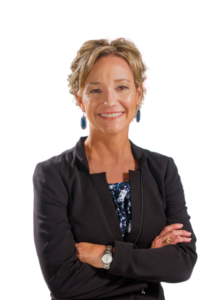 Dr. Fleener moved to College Station in 2006, where she joined her father, Dr. Terry Jenkins, in practice at the Cancer Clinic. In addition to spending time with her husband Greg and four children, she enjoys running, reading, traveling, and having a great BBQ with family and friends. You can reach the Cancer Clinic at 979.776.2000 or by visiting cancerclinic.com today!
Dr. Fleener moved to College Station in 2006, where she joined her father, Dr. Terry Jenkins, in practice at the Cancer Clinic. In addition to spending time with her husband Greg and four children, she enjoys running, reading, traveling, and having a great BBQ with family and friends. You can reach the Cancer Clinic at 979.776.2000 or by visiting cancerclinic.com today!
